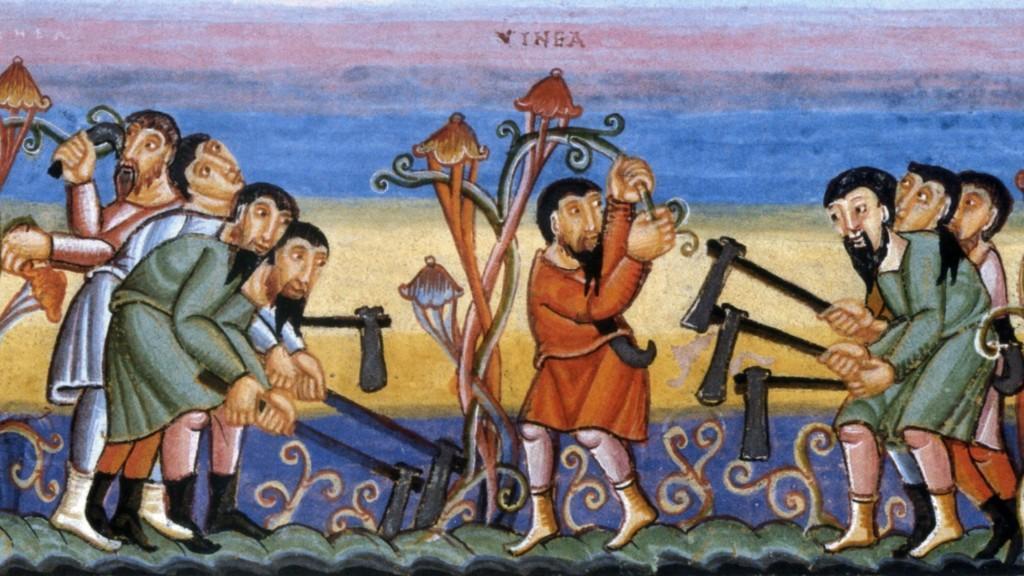
Your Freedom Is In Being Last: Even More Thoughts on Freedom and Free Speech
“Then he punctuates the story with one of his most theologically challenging statements: ‘Thus the last will be first and the first will be last.’ And the privileged people who worked a full day are irate. They can’t believe it! They were expecting equality. They were expecting to get paid more than the people who worked less than a full day. What they didn’t know is that Jesus isn’t interested in equality; Jesus is interested in equity.”
The above passage comes from a great blog post written by social psychologist, Christena Cleveland, titled How to be last: Towards a practical theology for privileged people. I recently re-read the post because my friend shared it again on Facebook. I’m thankful to have re-read Christena’s post because it really helped me solidify some connections on two closely related subjects that I’ve been been thinking and blogging a lot about lately: “freedom” and “free speech.” (Obviously, these subjects have also been primary in our larger societal consciousness as well.)
I often hear people who claim to be in the center (or who think they’re above political discourse all together) conclude that both sides, the left and the right, are effectively trying to control speech. To some degree I think this is accurate to say; I mean we can cite examples all day of recent leftist protests attempting to silence right-wing hate speech and crazy left-leaning liberals attempting to force people to provide trigger warnings, as well as examples of right-wing groups attempting to control women’s bodies, control who can use bathrooms, and even limit protesting all together. However, I think there is a crucial difference between the left and the right with regard to their desire to control speech/people’s actions, and the discerning questions we can ask here are: what type of speech/actions are each group trying to limit, and who is this controversial speech/action coming from?
Generally, it’s my experience and understanding that the right’s attempts to control free-speech and/or free-action generally come from a place of wanting to maintain some sort of anxious sheltered protection, i.e. the intent is to perpetuate some sort of perceived, established norm or status quo. And more often than not this established norm is a hierarchy where some people are just inherently more superior/powerful than others and, therefore, more deserving to rule. So, the controversial speech/actions that bug conservatives generally come from below, thus they oppose abortion, which gives women more freedom/rights over their own bodies; they oppose economic welfare policies that would grant disadvantaged poor people greater opportunities and freedom; they oppose “anti-American” college professors; and of course gender-neutral bathrooms.
Conversely, like Christena says above regarding good old JC, It’s my experience that the left is more interested in equity, meaning the speech and freedoms the left is interested in “restricting” are those that belong to the powerful and privileged, effectively making more room for voices from below. For me personally, attempting to cultivate an attitude of omni-sensitivity isn’t done out of a contemptuous, vindictive effort to denigrate or shame anyone (although I’m sure some people on the left are all about shaming racists and bigots ((and I honestly can’t blame them…))), it’s out of an effort to create a more equitable society for all people. So although it may seem like a window closing when a powerful, privileged person is no longer able to do whatever they wish with complete impunity it is also, simultaneously, a door opening for a person who could never get that damned door opened before. Once this is done hopefully the privileged person can one day understand that that window was actually letting in really cold air and, yeah, it’s way better for everyone to have that window closed…
Ultimately, the results of giving up ones power and siding with the powerless are summed well by Christena in her post: “If you’re a privileged person…When you inhabit your role as last, you play a crucial part in forging and maintaining the equitable balance of the kin-dom of heaven. Furthermore, your freedom is in being last. Your pathway to a more just world is in being last. Your liberation from the shackles, alienation and dehumanization of privilege is in being last. Your freedom from the stronghold of power and consumerism is in being last. Your pathway to mutuality and kinship with the people of this world is in being last. Your pathway to the kin-dom of heaven is in being last. Your pathway to resurrection is in being last.”
Amen.
[…] God is not a king with great power. God is a loving, relational, sensitive, caring, parent who has a special concern for the weak, vulnerable, marginalized, and needy. Because God is not an all powerful monarch in the sky, God does not have all the power, God is NOT a coercive dictator. God does not impose God’s will upon us. As John Cobb says, “The normal relation of the father to the infant is one of tenderness and unconditional love. It was unconditional love rather than controlling power that dominated Jesus’ understanding of God.” God relates to us, provides us with possibilities, and then lures us, beckons us, and implores us to make good decisions, like a good parent does. Because God is a good parent God self-sacrifices so all of God’s children can be more free. […]